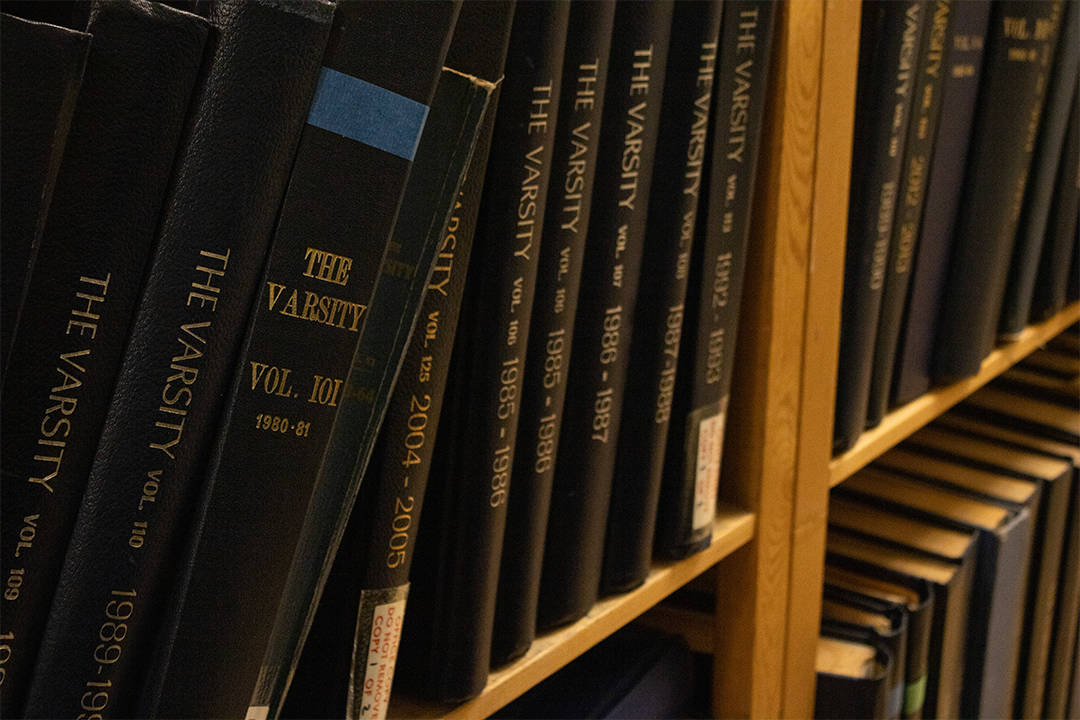Last summer, The Varsity hired me as an associate comment editor for the upcoming academic year. It was a small dream that came true right when I needed it: an opportunity to write, tell stories, and be good at what I know I excel at. Some seven months later, I learned the ropes, peeked behind the curtain, and came face to face with the gaggle of wizards inside the emerald office building.
Managing and maintaining a student publication of such history, scope, and scale demands an incredible team of passionate, politically conscious, and precise thinkers. To nurture a truly ‘free’ press, we need a sharp ear for the discourses within and around the student body, and a creative vision that works at generating not only engagement with the newspaper’s coverage but also productive dialogue across the university.
While we have done well over the course of this academic year, there remains room at The Varsity for a certain ‘je ne sais quoi,’ vigour, and effectiveness in the representativeness of the paper’s coverage.
For one, this newspaper needs to begin translating its most important articles and stories into other languages. 144 years ago, when The Varsity’s first issue was published, English may have been the most common first language for the majority of the students at U of T. Today, however, our student body reflects Canada’s enormous demographic change and the “hyper diverse” student body of Toronto, as Hang-Sun Kim, a professor in U of T’s Germanic languages and literatures department, described at the university’s culture day last year.
More people than ever before in Canada report speaking a first language other than English, and the university too boasts its international student enrolment — the majority of which comes from countries such as China, India, and South Korea, which have at least one non-English language as an official language.
In this regard, The Varsity should make room for translated journalism, and the opportunity to reflect our university’s student body as much as we represent them. It is not hard to allow people to tell their own stories, but this is an edict that needs to be enforced and then reinforced. Once upon a time, there was The Varsity’s Chinese website: a project dedicated to student journalism written and translated in simplified Chinese. It lived and died quickly, but we could restore this publication and work toward a similar exercise for French and Korean speakers too, for example. It’s easy enough when we are allowing the students to tell their own stories.
In giving students the agency to tell their own stories, I am keen on generating dialogue that is nuanced and constructive. It’s important that for issues such as the Black History Month Issue, the Indigenous Issue, and even articles published during Pride Month, even more of our contributors should come from the communities around which these conversations are centred. This challenge partially falls to you, the students, who ought to meet your newspaper in the middle as we endeavour to extend these opportunities to you.
I think The Varsity would also benefit from once in a while actively pursuing conversations from students who talk against the status quo — the kinds that might, in the worst-case scenario, leave essay-length comments under articles with names such as @PurgeTheLeft — not with the goal of platforming hate speech but with the ethos of engaging in dialogue by writing and writing back.
The newspaper’s Equity Guide states a commitment to free speech with ‘reasonable limits’ such as defamation. As long as speech does not cross into conduct that violates our behaviour-based policies against hatred and harassment, anyone is welcome to submit their stories and opinions to be fact-checked, edited, and published. In my opinion, the best solution to poor speech is good speech and then more speech — so let’s have a regular, congenial conversation, and expand it to an audience of nearly 100,000 students and see what happens.
Journalism like this makes us uncomfortable, but the duty of journalism and the free press is to mediate between the practical, observational experience of the world, and its narrative and visual representation, and this does not promise easy answers. With a team of intelligent and sensitive editors, I don’t think this reporting will cause harm, but perhaps it may soothe readers by granting a voice to that pain.
As a newspaper, it is our role to protect our readers from material that might harm them, but where we can, The Varsity ought to work to prevent the claustrophobia that might materialize out of too much sheltering, when in an intimate engagement with the politics or ideas of another, one finds themselves unarmed and reaching for flimsy, minor tools.
Working at The Varsity has been one of the highlights of my time at U of T, and I can only hope that with this time, myself and this great team can not only continue a great legacy but enhance it also.
Divine Angubua is a third-year student at UTM studying history, political science, and creative writing. He is the editor-in-chief of With Caffeine and Careful Thought and a staff writer at The Medium. He is an associate comment editor at The Varsity.



No comments to display.